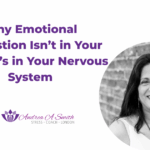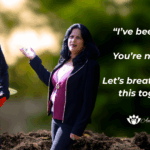The relationship between professional development and confidence is so close to being unbreakable. It is frequently regarded as essential and helps us advance professionally. But how does this fuel appear in our daily jobs, and what does it look like?
Confidence does not come naturally; it must be developed over time. The core of this trait is learning to be honest, first with ourselves and subsequently with others. It is incorrect to suppose that we are either confident or not; this is true – it’s not a binary concept. Just as we build resilience over time, we can cultivate it.
Like happiness, confidence isn’t a condition that just some ‘fortunate’ people can enter effortlessly. Their abilities developed over time through purposeful practice and exposure. We can frequently be prevented from leaving our comfort zones and chasing our aspirations by a lack of self-esteem. We can be prevented from realising our full potential by this invisible chain. However, confidence may be created and appreciated with the appropriate attitude and effort.
Winston Churchill once said, “Success is not final, failure is not fatal: it is the courage to continue that count.” Keep those wise words in mind. Even if it might occasionally be difficult, maintaining self-esteem & self-worth while engaging with others is a barrier that can be cleared.
Confidence’s subtle yet profound transformational effect can be seen in how we carry ourselves, interact with people, take cautious risks, and demonstrate leadership. People with self-esteem can overcome obstacles without losing their composure and trusting their instincts. However, if it doesn’t exist, we might see a different world. It’s important to understand that self-esteem is a talent that can be developed over time, even though many people think of it as an innate quality you either have or don’t. It grows and prospers like other skills with practice, dedication, and the right mindset.
The path to developing your self-worth is not without its challenges. Our fear of failing frequently stymies our courage to explore new things or take chances. It’s a typical story that the sheer thought of failure prevents us from giving it our all. Does that make sense to you?
Furthermore, lacking self-esteem makes it difficult to leave our comfort zones and pursue our objectives. It is an invisible barrier that prevents us from reaching our full potential. Think about this: What opportunities have you missed because of be a low-confident person? Possibly expressing your opinions, asking for a promotion, or changing careers?
A key component of this is feeling at ease in one’s skin. It concerns how we behave with others and how we see ourselves. Are you confident in who you are? We can all gain from learning how to foster confidence and tackle our concerns. Therefore, I want everyone to reflect on these topics and share their experiences. After all, don’t we change with time?
Charting Your Journey: Developing Confidence
Speaking more on the value of confidence, it’s not just a desired quality. It’s essential for advancing your career. We can express our opinions, stand by them, and present ourselves as capable, reliable people when we are confident.
Building confidence is a difficult process. It calls for endurance, perseverance, and the courage to confront our anxieties and insecurities. How, therefore can we foster confidence?
Recognise from once that failure is not a calamity but rather an opportunity for development and learning. Every failure can serve as a springboard for progress. Failures should be viewed as teachers, not as punishers.
Determine the areas where your lack of confidence prevents you from advancing professionally. Is it decision-making, networking, or public speaking? It’s time to address these issues after identifying them. Small, regular measures might result in substantial advancements.
Self-compassion training is essential. We are often the harshest judges of ourselves, which undermines our confidence. During difficult circumstances, treating oneself with the same compassion and understanding as we would a friend can make a significant impact.
Furthermore, sincerity possesses tremendous force. Self-acceptance and being true to yourself help you build self-esteem, confidence, and real connections with others.
Finally, keep in mind the power of a growth attitude. Although they can be developed, their abilities are not fixed. By approaching problems from this angle, you can develop your abilities, broaden your knowledge, and gain confidence.
The path to developing confidence is frequently paved with dread and self-doubt. But it’s important to remember that courage isn’t about getting rid of fear but facing it head-on and moving on. Let’s remember to build our self-assurance, enjoy our successes, take lessons from our failures, and foster our progress as we traverse our professional lives. What steps have you taken to build your confidence? What challenges have you faced and overcome along the way? I’d like to hear about your experiences to keep having this thought-provoking discussion.
The ability to be confident can fluctuate, especially when we push ourselves to step outside of our comfort zone and try new things. Even in a chaotic world, we manage and create it. We are born with confidence, but difficulties in life may obscure it. The challenge then becomes finding it again.
Our actions and the comments we receive from friends, family, co-workers, and the community help us develop confidence. A strong motivator and confidence builder is self-belief. Let’s talk wellbeing and a stress coach can help.
In conclusion, developing confidence is a lifelong path filled with successes and failures. We may advance our careers and realise our goals by embracing authenticity, cultivating self-compassion, keeping a growth mindset, and learning from our mistakes.
Join this ongoing discussion – how are you fostering your confidence? Share your experiences and learnings. Remember, your story might just inspire someone to start their journey towards building confidence with a life coach near me and a certified life coach.










